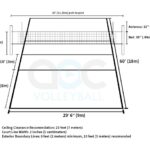How Do Unschoolers Learn Math? Unschooling math concepts are integrated into daily life through practical experiences, projects, and interests, fostering a deep and meaningful understanding. Discover how LEARNS.EDU.VN supports this unique approach by providing resources and guidance to help unschoolers excel in mathematics. Embrace the freedom of learning and unlock your child’s mathematical potential with unschooling techniques, alternative math education, and self-directed learning strategies.
1. Understanding Unschooling and Math Education
Unschooling, a form of homeschooling, takes a child-led approach to learning. Unlike traditional schooling, unschooling doesn’t rely on a fixed curriculum, grades, or standardized tests. Instead, it emphasizes learning through real-life experiences, personal interests, and self-directed exploration. This raises an important question: how do unschoolers learn math in this flexible environment?
1.1. What is Unschooling?
Unschooling is an educational philosophy and practice where learning is driven by the child’s curiosity and interests, rather than a predetermined curriculum. It rejects the conventional classroom setting and embraces learning through daily experiences, conversations, books, travel, and exploration.
Key Principles of Unschooling:
- Child-Led Learning: The child’s interests dictate the learning path.
- Real-Life Experiences: Learning is integrated into everyday activities.
- Flexibility: There is no fixed schedule or curriculum.
- Trust in the Child’s Ability to Learn: Unschoolers believe that children are naturally curious and capable of learning without coercion.
1.2. The Misconception About Math in Unschooling
One of the most common concerns about unschooling is whether children will learn math adequately. Many people associate math with textbooks, worksheets, and rote memorization. They worry that without structured lessons, unschoolers will miss out on essential mathematical concepts. However, this perception overlooks the many ways math naturally arises in daily life.
1.3. The Ubiquity of Math in Everyday Life
Math is not confined to the classroom; it’s everywhere. From cooking and baking to managing money and building projects, math is an integral part of our daily routines. Unschoolers leverage these real-world scenarios to learn math in a meaningful and engaging way.
2. How Do Unschoolers Learn Math: Practical Examples
Unschoolers learn math through a variety of practical, hands-on experiences. These experiences make math relevant and engaging, fostering a deeper understanding than traditional methods.
2.1. Math in Financial Literacy
Financial literacy is a crucial life skill, and unschooling provides ample opportunities to learn about money management.
Examples:
- Pocket Money and Savings: Managing pocket money, setting savings goals, and making purchasing decisions.
- Budgeting: Participating in family budgeting, comparing prices, and understanding percentages and sales.
- Online Shopping: Helping with online grocery shopping, sticking to a budget, and calculating discounts.
By actively managing their finances, unschoolers learn practical math skills like addition, subtraction, multiplication, division, and percentage calculations.
2.2. Math in Cooking and Baking
Cooking and baking are excellent ways to learn fractions, measurement, and time management.
Examples:
- Following Recipes: Measuring ingredients, doubling or halving recipes, and understanding fractions.
- Temperature and Time: Adjusting cooking times and temperatures based on recipe instructions.
- Meal Planning: Calculating the cost per person, shopping for ingredients, and managing time to prepare meals.
These activities help unschoolers develop a strong understanding of measurement units, ratios, and proportions.
2.3. Math in Home Improvement and DIY Projects
Home improvement and DIY projects involve a wide range of mathematical concepts, including measurement, geometry, and spatial reasoning.
Examples:
- Redecorating a Room: Planning the layout, measuring the area, calculating the surface area for painting, and budgeting for materials.
- Building Projects: Constructing a chicken coop, dollhouse, or piece of furniture, which requires precise measurements and geometric calculations.
- Gardening: Measuring garden space, planning the layout, calculating the amount of soil needed, and determining plant spacing.
These projects provide hands-on experience with geometry, measurement, and problem-solving.
2.4. Math in Travel and Navigation
Travel offers numerous opportunities to learn about time, distance, speed, and map reading.
Examples:
- Reading Train Timetables: Calculating travel times, understanding schedules, and planning routes.
- Using Maps: Estimating distances, determining the shortest route, and understanding map scales.
- Calculating Travel Expenses: Budgeting for travel costs, comparing prices, and managing currency exchange rates.
These activities enhance unschoolers’ understanding of time management, spatial reasoning, and problem-solving skills.
2.5. Math in Hobbies and Interests
Unschoolers often pursue hobbies and interests that naturally involve math, making learning enjoyable and relevant.
Examples:
- Sports: Tracking statistics, calculating scores, and understanding probabilities.
- Gaming: Playing video games like Minecraft, which involves spatial reasoning, resource management, and geometric calculations.
- Music: Understanding time signatures, patterns, and ratios in music.
- Coding: Learning programming, which requires logical thinking, problem-solving, and mathematical concepts.
These activities allow unschoolers to explore math in a context that interests them, fostering a deeper understanding and appreciation.
3. Addressing Concerns About Higher-Level Math
One common concern among parents considering unschooling is whether their children will learn higher-level math concepts like algebra, geometry, and calculus. While unschoolers may not follow a traditional curriculum, they can still acquire these skills through various means.
3.1. Interest-Driven Learning of Advanced Math
When unschoolers become interested in a particular subject or career path that requires advanced math, they are highly motivated to learn it. This intrinsic motivation makes learning more effective and enjoyable.
Examples:
- Engineering: A child interested in engineering may learn calculus and physics to design and build structures or machines.
- Computer Science: A child interested in computer science may learn discrete mathematics and algorithms to develop software and solve complex problems.
- Economics: A child interested in economics may learn statistics and calculus to analyze market trends and make informed financial decisions.
3.2. Utilizing Resources for Math Learning
Unschoolers have access to a wide range of resources that can support their math learning, including:
- Online Courses: Platforms like Khan Academy offer free courses on various math topics, from basic arithmetic to advanced calculus.
- Math Apps and Games: Apps like Prodigy Math and Matharoo provide engaging ways to practice math skills.
- Books and Workbooks: Many excellent math books and workbooks are available for self-directed learning.
- Tutors and Mentors: Unschoolers can work with tutors or mentors who specialize in math to receive personalized instruction and guidance.
- Libraries: Libraries offer a wealth of resources, including math books, educational videos, and online databases.
3.3. Incorporating Math into Projects and Activities
Unschoolers can incorporate higher-level math concepts into projects and activities that align with their interests.
Examples:
- Building a Tiny House: This project involves geometry, measurement, and algebra to calculate dimensions, angles, and material costs.
- Starting a Business: This involves accounting, financial analysis, and marketing, which require math skills like budgeting, pricing, and forecasting.
- Participating in Science Projects: This involves data collection, analysis, and interpretation, which require statistical skills.
3.4. Real-Life Examples of Unschoolers Learning Advanced Math
There are many examples of unschoolers who have successfully learned advanced math concepts and pursued careers in math-related fields.
- Self-Taught Sine, Cosine, and Tangent: One unschooler self-taught sine, cosine, tangent, algebraic equations, and other angle/speed/force/physics concepts through archery.
- Building a Self-Sufficient Tiny House: Another unschooler is building a fully self-sufficient off-grid tiny house and permaculture system, which requires high-level math skills.
These examples demonstrate that unschoolers are capable of learning advanced math when they are motivated and have access to the right resources.
4. Creating a Math-Rich Environment for Unschoolers
Parents can create a math-rich environment that supports their children’s learning by providing opportunities for exploration, discovery, and engagement.
4.1. Providing Access to Resources and Tools
Ensure that your child has access to a variety of math resources, including books, games, apps, and online courses.
Examples:
- Math Books: “Murderous Maths” series, “Math Riddles for Smart Kids,” “Sir Cumference” series, “This is Not a Maths Book,” “The Maths Book: Big Ideas Simply Explained.”
- Math Games: Farkle, Blokus, Monopoly, Catan, Sumoku, Yahtzee, Prime Climb, Dino Math Tracks.
- Online Resources: Khan Academy, Prodigy Math, Matharoo.
4.2. Encouraging Exploration and Experimentation
Encourage your child to explore math concepts through hands-on activities, projects, and experiments.
Examples:
- Building with Blocks: This activity helps develop spatial reasoning and geometric understanding.
- Playing with Puzzles: This activity helps develop problem-solving skills and logical thinking.
- Conducting Science Experiments: This activity helps develop data collection, analysis, and interpretation skills.
4.3. Connecting Math to Real-Life Situations
Help your child see the relevance of math by connecting it to real-life situations and their interests.
Examples:
- Cooking: Involve your child in measuring ingredients, adjusting recipes, and calculating cooking times.
- Shopping: Involve your child in comparing prices, calculating discounts, and managing a budget.
- Travel: Involve your child in planning trips, reading maps, and calculating travel times and expenses.
4.4. Fostering a Positive Attitude Toward Math
Create a supportive and encouraging environment where your child feels comfortable exploring math without fear of failure.
Tips:
- Focus on Understanding: Emphasize understanding concepts rather than memorizing formulas.
- Celebrate Progress: Acknowledge and celebrate your child’s progress and achievements.
- Make it Fun: Incorporate games, puzzles, and other fun activities to make learning math enjoyable.
5. Unschooling Math: A Personalized Approach
Unschooling math is not about following a prescribed curriculum but about creating a personalized learning experience that meets the individual needs and interests of the child.
5.1. Assessing Your Child’s Learning Style
Every child learns differently. Some children are visual learners, while others are auditory or kinesthetic learners. Understanding your child’s learning style can help you tailor your approach to math education.
Learning Styles:
- Visual Learners: Learn best through images, diagrams, and visual aids.
- Auditory Learners: Learn best through listening, discussions, and audio recordings.
- Kinesthetic Learners: Learn best through hands-on activities, movement, and experimentation.
5.2. Identifying Your Child’s Interests and Passions
Identifying your child’s interests and passions can help you find ways to incorporate math into their favorite activities.
Examples:
- If your child loves animals: Explore math concepts through animal statistics, such as population sizes, growth rates, and conservation efforts.
- If your child loves art: Explore math concepts through geometry, symmetry, and perspective in art.
- If your child loves sports: Explore math concepts through sports statistics, scoring systems, and game strategies.
5.3. Setting Realistic Goals and Expectations
Set realistic goals and expectations for your child’s math learning, and focus on progress rather than perfection.
Tips:
- Start Small: Begin with basic concepts and gradually introduce more advanced topics.
- Be Patient: Learning takes time, and it’s important to be patient and supportive.
- Celebrate Successes: Acknowledge and celebrate your child’s achievements, no matter how small.
5.4. Embracing Flexibility and Adaptability
Unschooling is all about flexibility and adaptability. Be prepared to adjust your approach as your child’s interests and needs change.
Tips:
- Follow Your Child’s Lead: Let your child’s interests guide the learning process.
- Be Open to New Ideas: Be willing to try new approaches and resources.
- Don’t Be Afraid to Change Course: If something isn’t working, don’t be afraid to try something else.
6. Resources and Tools for Unschooling Math
Numerous resources and tools can support unschooling math, from online platforms to books and games.
6.1. Online Math Platforms
Online math platforms offer a wide range of courses, tutorials, and practice exercises.
Examples:
| Platform | Description | Features |
|---|---|---|
| Khan Academy | A free platform that offers courses on various math topics, from basic arithmetic to advanced calculus. | Video lessons, practice exercises, personalized learning paths, progress tracking. |
| Prodigy Math | An engaging math game that adapts to the child’s skill level and provides personalized practice. | Game-based learning, adaptive curriculum, progress tracking, rewards system. |
| Matharoo | A platform that provides daily math challenges and puzzles designed to stimulate mathematical thinking. | Daily challenges, puzzles, real-world applications, problem-solving activities. |
| IXL Math | A comprehensive math program that covers a wide range of topics and provides personalized practice. | Skill-based learning, personalized recommendations, progress tracking, interactive exercises. |
| Beast Academy | An advanced math program for students in grades 2-5, designed to challenge and engage bright minds. | Comic-based lessons, challenging problems, critical thinking activities, problem-solving strategies. |




6.2. Math Books and Workbooks
Math books and workbooks offer structured lessons and practice exercises for self-directed learning.
Examples:
| Book Title | Description | Features |
|---|---|---|
| Murderous Maths Series | A series of books that make math fun and engaging through humorous stories and real-world applications. | Humorous stories, real-world applications, puzzles, games. |
| Math Riddles for Smart Kids | A book that challenges children’s mathematical thinking through riddles and puzzles. | Riddles, puzzles, brain teasers, problem-solving activities. |
| Sir Cumference Series | A series of books that introduce geometric concepts through engaging stories and illustrations. | Engaging stories, illustrations, geometric concepts, hands-on activities. |
| This is Not a Maths Book | A book that explores math through creative projects and activities. | Creative projects, hands-on activities, real-world applications, problem-solving. |
| The Maths Book: Big Ideas Simply Explained | A book that explains complex math concepts in a clear and accessible way. | Clear explanations, diagrams, illustrations, historical context. |
| Life of Fred Series | A series of books that teach math through the story of a young boy named Fred. | Story-based learning, real-world applications, problem-solving, humor. |
| Singapore Math Workbooks | Workbooks that provide a structured approach to math learning, with a focus on conceptual understanding. | Structured lessons, practice exercises, conceptual understanding, problem-solving. |
6.3. Math Games and Puzzles
Math games and puzzles can make learning math fun and engaging.
Examples:
| Game/Puzzle | Description | Math Skills |
|---|---|---|
| Farkle | A dice game that involves calculating scores and making strategic decisions. | Addition, subtraction, probability, strategic thinking. |
| Blokus | A strategy game that involves spatial reasoning and geometric thinking. | Spatial reasoning, geometry, problem-solving, strategic thinking. |
| Monopoly | A classic board game that involves managing money, calculating rent, and making financial decisions. | Addition, subtraction, multiplication, division, budgeting, financial literacy. |
| Catan | A strategy game that involves resource management, negotiation, and probability. | Resource management, probability, negotiation, strategic thinking. |
| Sumoku | A word game that combines math and vocabulary. | Addition, subtraction, vocabulary, strategic thinking. |
| Yahtzee | A dice game that involves calculating scores and making strategic decisions. | Addition, subtraction, probability, strategic thinking. |
| Prime Climb | A board game that involves prime numbers, multiplication, and division. | Prime numbers, multiplication, division, strategic thinking. |
| Dino Math Tracks | A board game that helps young children learn basic math skills. | Addition, subtraction, counting, number recognition. |
| Set | A card game that involves pattern recognition and logical thinking. | Pattern recognition, logical thinking, problem-solving. |
| KenKen | A logic puzzle that combines arithmetic and Sudoku. | Addition, subtraction, multiplication, division, logical thinking, problem-solving. |
7. Addressing Common Concerns and Myths About Unschooling Math
Despite the many benefits of unschooling math, some common concerns and myths need to be addressed.
7.1. “Unschoolers Won’t Learn Enough Math”
This is a common concern, but it’s not supported by evidence. Unschoolers learn math through real-life experiences, projects, and interests, which can be more effective than traditional methods.
7.2. “Unschoolers Will Fall Behind Their Peers”
This is also a misconception. Unschoolers learn at their own pace and may excel in areas that interest them, even if they don’t follow a traditional curriculum.
7.3. “Unschooling Math Requires a Lot of Effort from Parents”
While it’s true that unschooling requires effort from parents, it’s not necessarily more effort than traditional schooling. Unschooling parents act as facilitators and resources, rather than teachers.
7.4. “Unschooling Math is Only Suitable for Certain Children”
Unschooling can be suitable for any child who is curious, motivated, and self-directed. It’s not limited to children with specific learning styles or abilities.
8. Success Stories: Unschoolers Who Excel in Math
Many unschoolers have achieved remarkable success in math and related fields. These success stories demonstrate the potential of unschooling math.
8.1. Case Study 1: Unschooler Becomes an Engineer
An unschooler who developed a passion for building and design pursued a career in engineering. He learned advanced math concepts through online courses, books, and hands-on projects, and he excelled in his engineering studies.
8.2. Case Study 2: Unschooler Starts a Tech Business
An unschooler who was fascinated by computers and programming started his own tech business. He learned coding, algorithms, and data analysis through online resources and self-directed projects, and he built a successful career in the tech industry.
8.3. Case Study 3: Unschooler Pursues a Career in Finance
An unschooler who was interested in economics and finance pursued a career in the financial industry. She learned statistics, calculus, and financial modeling through online courses, books, and internships, and she became a successful financial analyst.
These success stories highlight the potential of unschooling math to prepare children for successful careers in math-related fields.
9. How LEARNS.EDU.VN Supports Unschooling Math
LEARNS.EDU.VN is committed to supporting unschooling families by providing resources, guidance, and a community for learning and growth.
9.1. Resources and Articles on Unschooling Math
LEARNS.EDU.VN offers a wealth of articles and resources on unschooling math, including tips, strategies, and practical examples.
9.2. Online Courses and Tutorials
LEARNS.EDU.VN provides access to online courses and tutorials on various math topics, from basic arithmetic to advanced calculus.
9.3. Community Forum for Unschooling Families
LEARNS.EDU.VN hosts a community forum where unschooling families can connect, share ideas, and support each other.
9.4. Expert Advice and Guidance
LEARNS.EDU.VN offers expert advice and guidance on unschooling math from experienced educators and unschooling parents.
10. Getting Started with Unschooling Math
If you’re interested in exploring unschooling math, here are some steps to get started:
10.1. Research and Learn About Unschooling
Learn about the principles and practices of unschooling, and understand how it differs from traditional schooling.
10.2. Assess Your Child’s Interests and Learning Style
Identify your child’s interests and learning style to tailor your approach to math education.
10.3. Create a Math-Rich Environment
Provide access to a variety of math resources, tools, and experiences that support your child’s learning.
10.4. Connect with Other Unschooling Families
Join a local or online unschooling community to connect with other families and share ideas and support.
10.5. Trust the Process and Be Patient
Unschooling is a journey, and it takes time to see results. Trust the process, be patient, and enjoy the ride.
FAQ: How Do Unschoolers Learn Math?
-
How do unschoolers learn math without a traditional curriculum?
Unschoolers learn math through real-life experiences, projects, and interests, integrating math into their daily activities.
-
What if my child doesn’t show an interest in math?
Explore different ways to connect math to your child’s interests, such as cooking, gaming, or sports.
-
How do I ensure my child learns higher-level math concepts?
Provide access to resources like online courses, books, and tutors, and encourage your child to pursue projects that involve advanced math.
-
Is unschooling math suitable for all children?
Unschooling can be suitable for any child who is curious, motivated, and self-directed.
-
What resources are available for unschooling math?
Numerous resources are available, including online platforms like Khan Academy, math books, games, and community forums.
-
How can I create a math-rich environment for my child?
Provide access to math resources, encourage exploration and experimentation, connect math to real-life situations, and foster a positive attitude toward math.
-
What if my child falls behind their peers in math?
Unschoolers learn at their own pace, and it’s more important to focus on understanding concepts than comparing to others.
-
How do I assess my child’s progress in math?
Observe your child’s ability to apply math concepts in real-life situations and projects, and use online platforms for progress tracking.
-
What are the benefits of unschooling math?
Unschooling math fosters a deeper understanding, encourages self-directed learning, and makes math more enjoyable and relevant.
-
Where can I find support and guidance for unschooling math?
LEARNS.EDU.VN offers resources, articles, online courses, a community forum, and expert advice for unschooling families.
Unlock Your Child’s Mathematical Potential with Unschooling
Unschooling offers a unique and effective approach to math education, fostering a deeper understanding and appreciation for mathematics. By integrating math into real-life experiences, projects, and interests, unschoolers develop strong problem-solving skills and a lifelong love of learning.
Ready to embark on the unschooling journey and unlock your child’s mathematical potential? Visit LEARNS.EDU.VN for more information, resources, and support. Our comprehensive articles, online courses, and community forum will guide you every step of the way.
Contact Information:
- Address: 123 Education Way, Learnville, CA 90210, United States
- WhatsApp: +1 555-555-1212
- Website: LEARNS.EDU.VN
Discover the joy of learning with learns.edu.vn and empower your child to excel in math and beyond.
